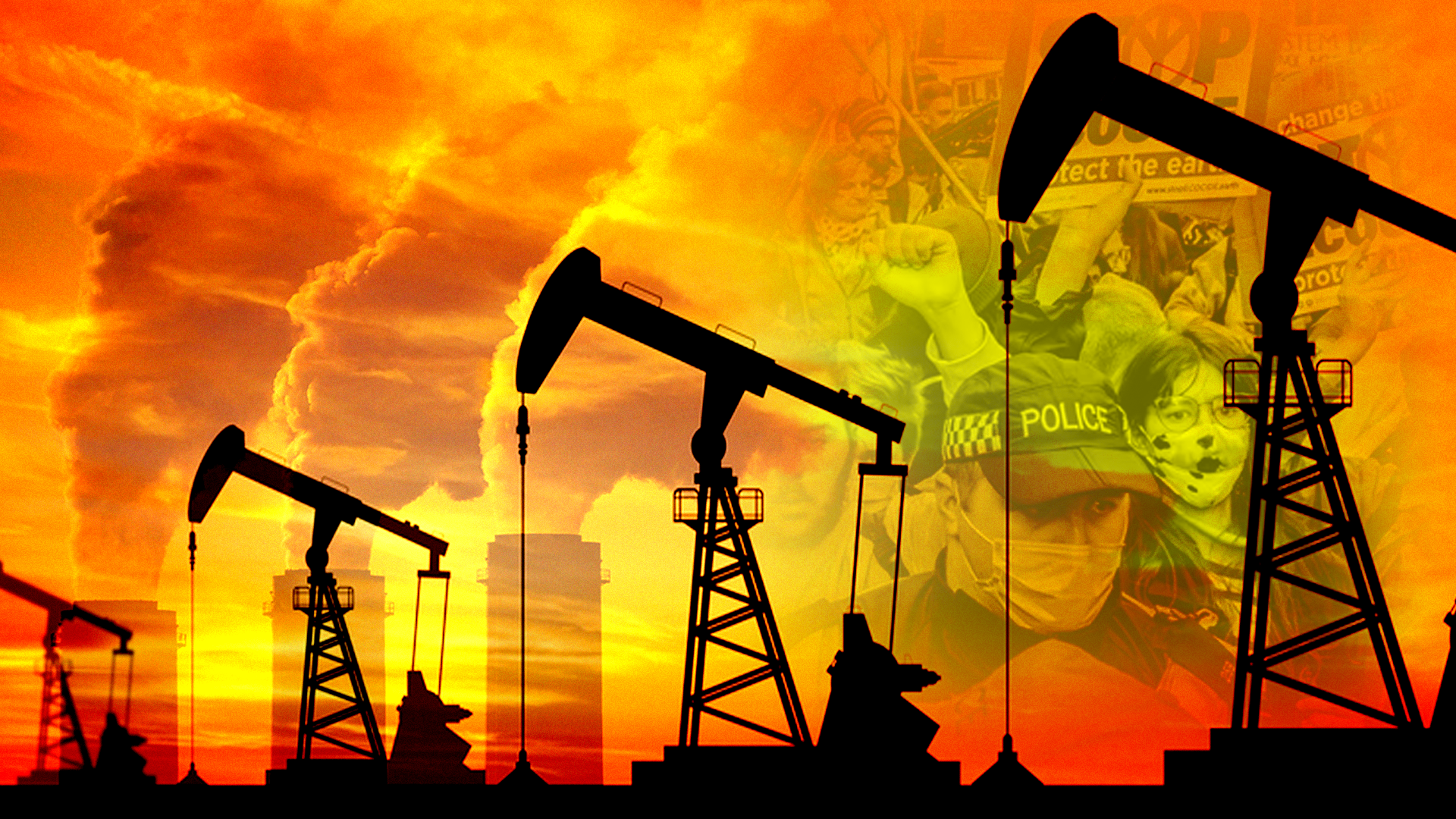In 2021, the world witnessed record-breaking climate disasters alongside the harsh reality that global fossil fuel production is incompatible with limiting global warming to 1.5 or even 2 degrees Celsius.
Overwhelming evidence of the fossil fuel industry’s role in this production gap has sparked an increasing number of protests calling for the end to further exploration and extraction.
Climate activists are now demonstrating the power people hold even in the face of a multi billion-dollar industry by successfully taking legal action and preventing oil drilling projects, pipelines, and even fossil fuel legislation.
Such activism has often been led by the groups on the front lines of climate change including youth and indigenous peoples. But environmental and climate activism can come with sacrifice, whether it be education as with activist Greta Thunberg or even safety as is increasingly becoming the case for activists globally.
In the most extreme cases, ties have been made between homicides and eco activists. Last year, the number of demonstrators reportedly murdered in a single year hit 227 – a record high.
Despite this, protests continue and are becoming progressively more geared towards the fossil fuel companies working to safeguard their own industry.

Anti-protest legislation and fossil fuels
The criminalisation of environmental protest – funded in part by oil and gas companies – is intended to ensure pipeline safety by punishing violence and property damage. Critics argue, however, that the true intent is to vilify activists and frame nonviolent disobedience as being violent.
At least 15 states in the US have enacted anti-pipeline protest laws since 2017 that increase the penalties for trespassing on energy infrastructure. In many cases, these laws have converted the offense from a misdemeanor to a felony charge.
It’s argued by eco-campaigners that these critical infrastructure laws make use of vague language like ‘tamper’ and ‘impede’ and do not clarify whether the law applies to land fully owned by a company or pipeline easements.
These ambiguities led to two protestors being sued for €2 million, having blockaded a coal power plant in Germany.
Other times, fossil fuel and energy infrastructure companies turn to more direct intimidation tactics. Kinder Morgan, one of the largest energy infrastructure companies in North America, asked a local police department for off-duty officers to ‘deter protests’. Acting in no official capacity, the authorities were reported to be uniformed and driving squad cars.
Through smear campaigns, public vilification, legal action, and underhand tactics, fossil fuel companies can pose a threat to the well being of activists and affected communities, especially BIPOC (Black, Indigenous, People of Color) and those in regions where civic and democratic freedoms are not widely accepted.
Against the odds, those who are willing and able to demonstrate against the number one contributor of carbon emissions have achieved major successes in the last decade.





















